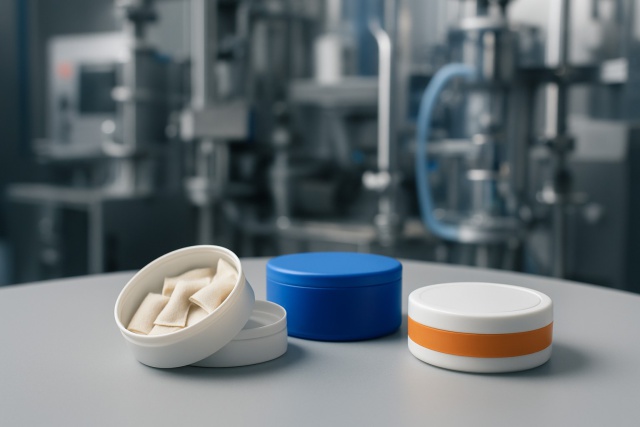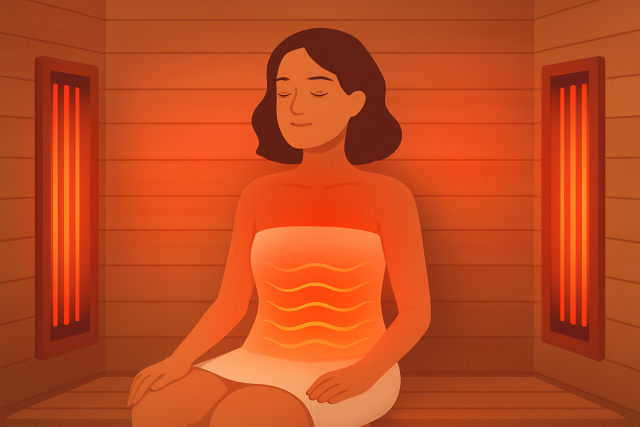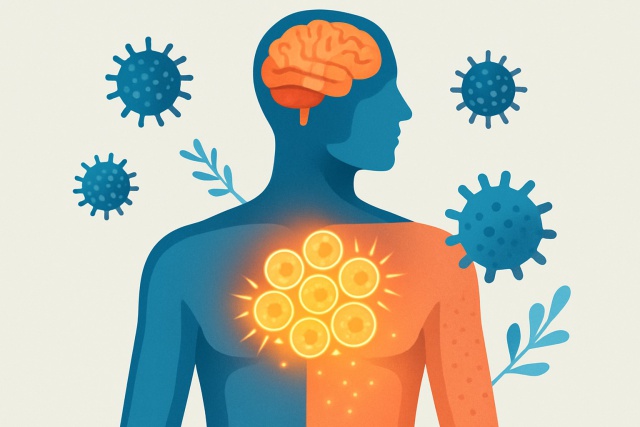
Mustard Headache - Causes You Need to Understand

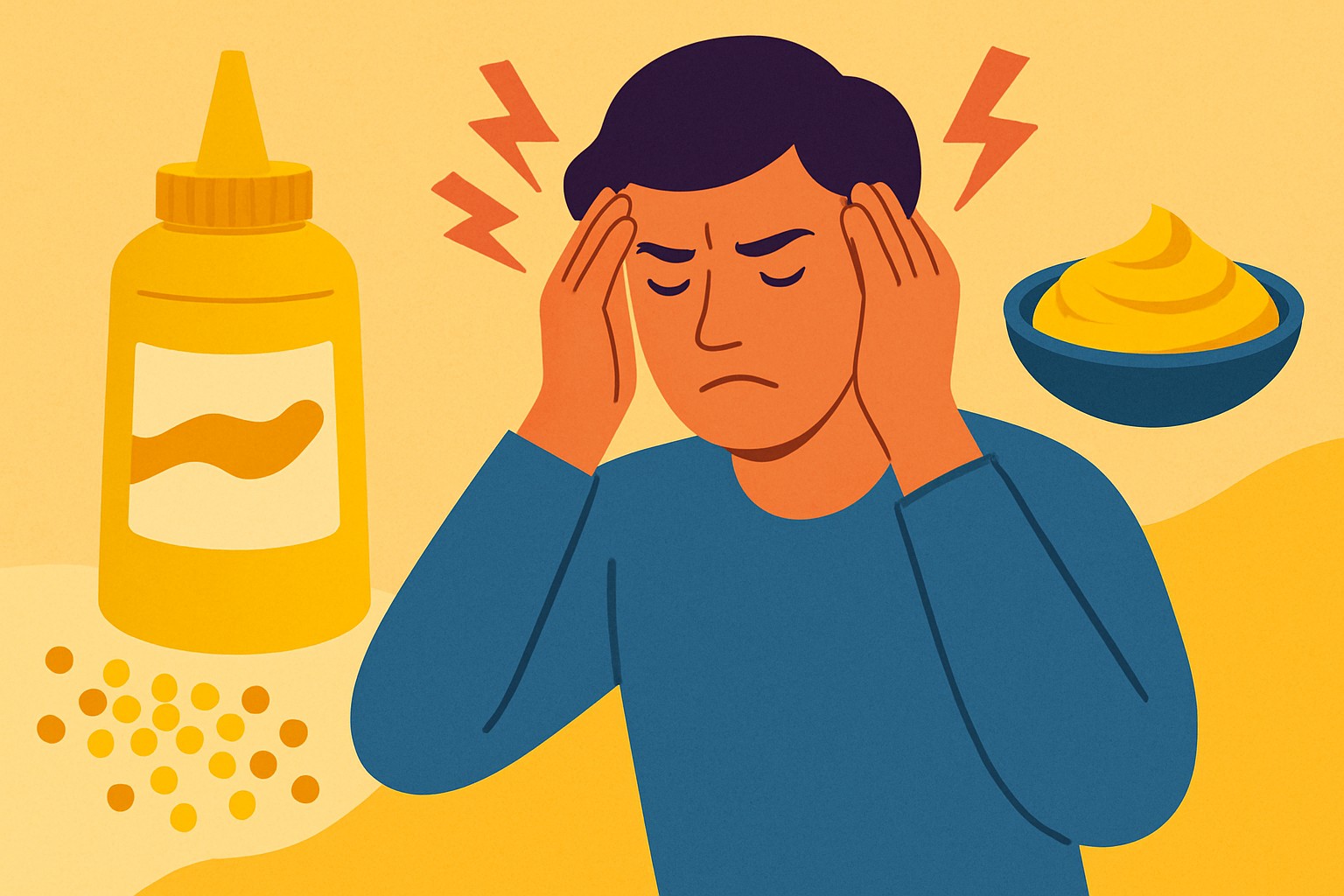
Mustard headache is a curious little condition that many individuals don’t see coming, where simply eating mustard or even catching a whiff of it can set off a headache. It tends to sneak up on people, especially since mustard is usually thought of as just a harmless condiment that jazzes up your sandwich.
How Would You Describe a Mustard Headache
A mustard headache sneaks up when you eat mustard or foods packed with it and suddenly triggers headache symptoms. This kind of headache isn’t your everyday type. It appears quite quickly after mustard comes into the picture, usually within minutes to an hour. Unlike common tension headaches or migraines caused by stress or other familiar triggers, mustard headaches bring distinctive sensations. These include a burning or heavy pressure feeling in the head, sometimes accompanied by sinus discomfort.
Common Symptoms of Mustard Headaches
- A throbbing or pulsating pain that tends to settle around the forehead or temples making you wish for relief
- Headaches that often come with sinus pressure or the stuffy congested feeling nobody enjoys
- Nasal irritation that feels like a slow-burning itch or a runny nose that just won’t quit
- Sharp burning sensations popping up in certain spots on the head or face like little unwelcome surprises
- Symptoms that can last a few minutes or drag on for several hours depending on how the day treats you
- Pain levels swinging from a slight nagging to something that really takes your breath away
- And sometimes just to keep things interesting nausea, dizziness or sensitivity to light join the party with the headache
What is Behind That Mustard-Induced Headache?
Mustard has a knack for causing headaches and it is all down to its chemical makeup—particularly compounds that don’t play nicely with nerve endings and blood vessels. These sharp chemicals can set off sensory and pain receptors around your nose and head, making you wince more than you’d expect. When they activate certain nerves, they can spark mild inflammation or even allergic reactions that lead to those pesky headaches. On top of that, biological factors like histamine release nudge the body into a response that, while uncommon, can bring on a mustard-induced headache.
Understanding the Curious Case of Allyl Isothiocyanate (AITC)
A key chemical in mustard is Allyl Isothiocyanate (AITC), the stuff that gives mustard its sharp and pungent kick. AITC is a volatile compound known for making your nose and sinuses protest a little when you breathe it in or take a bite. This irritation sets off nerve endings and tiny blood vessels around the nasal and cranial areas. It often sparks sensations that might feel like a headache sneaking up on you. The trigeminal nerve is the face’s go-to for handling sensation and pain and is particularly ticked off by AITC.
How Histamine Release Ties Into Allergic Reactions
Mustard can sometimes trigger mild allergic reactions or set off a release of histamine in certain individuals. Histamine makes blood vessels widen and often stirs up inflammation, which can be the culprit behind those pesky headaches.
A Closer Look at Sinus and Nerve Stimulation
Mustard compounds kick the trigeminal nerve into action and cause irritation in the nasal sinuses. This sparks sharp sensations many individuals mistake for brain freeze or sinus headaches. The trigeminal nerve handles all facial sensations and does not take kindly to these irritants. It fires off pain signals that can feel like pesky headaches around the forehead, cheeks or behind the eyes.
Who Usually Finds Themselves Battling Mustard Headaches?
- People who are allergic to or sensitive when it comes to mustard seeds or related plants
- Those who struggle with sinus problems or have sinuses that seem to throw a fit at the slightest provocation
- Individuals prone to migraines that flare up after certain foods sneak into their diet
- People dealing with histamine intolerance or any condition that pumps up histamine levels more than usual
- Those with particularly sensitive nasal nerves or an overactive trigeminal nerve response that doesn’t take things lightly
These factors often crank up the odds of mustard headaches, though sensitivity really runs the gamut from one person to another.
Different Types of Mustard and How They Might Just Be Sneaking Up on Your Headaches
Mustard pops up in several shapes and sizes, from your everyday prepared mustard condiments to raw mustard seeds and even the potent concentrated mustard oil. Each type carries its own punch of Allyl Isothiocyanate and other irritants, which basically determines how likely they are to set off headaches.
| Mustard Type | Allyl Isothiocyanate Content | Other Irritant Chemicals | Common Uses | Headache Trigger Likelihood |
|---|---|---|---|---|
| Prepared Mustard | Moderate | Sulforaphane, Myrosinase | A favorite on sandwiches and in dressings, bringing just the right zing without going over the top | Medium |
| Mustard Seeds | Variable (usually higher when crushed) | Sinigrin, Other isothiocyanates | Adds that punch to cooking and pickling; the punch really wakes up when those seeds get crushed | Medium to High |
| Mustard Oil | High | Concentrated AITC | Often doubling as a cooking oil and a topical remedy, this one packs quite the powerful punch | High |
| Yellow Mustard Powder | Lower | Milder pungent compounds | A gentler player, usually hanging out in mild condiments and recipes that don’t want to steal the spotlight | Low to Medium |
| Brown/Hot Mustard | High | Strong AITC, allyl cyanide | The go-to for those who like it spicy in their mustards and sauces—definitely not for the faint-hearted | High |
Recognizing and Handling Those Pesky Mustard Headaches
Tackle those pesky mustard headaches by keeping a close eye on your symptoms after you’ve had any mustard just to be sure it’s the culprit. Once mustard's nailed as the troublemaker, try cutting back or steering clear of it altogether. Testing your tolerance with tiny amounts can be a handy way to figure out what sits well with you. Sometimes, popping an antihistamine or avoiding products with topical mustard oil does the trick in easing those symptoms.
- Keep a detailed food and symptom diary to help spot any sneaky connections between mustard exposure and those pesky headaches
- Gradually cut back or stop eating mustard altogether if your symptoms start packing a punch
- Test your tolerance by starting with tiny amounts before diving in for more
- Steer clear of slathering mustard oil on your skin or cooking with it if you notice any sensitivity creeping in
- Consider antihistamines if allergies or histamine intolerance might be playing a role, but definitely have a chat with a healthcare provider first
- Seek medical advice if headaches keep crashing the party or don’t ease up even after avoiding mustard
Simple Home Remedies and Easy Ways to Keep It at Bay
Simple home remedies can often do the trick when it comes to easing the nagging symptoms of a mustard headache. Staying well-hydrated usually helps flush out those pesky irritants from the body. Nasal rinses with a saline solution tend to calm down sinus inflammation, giving you a bit of much-needed respite. Slapping on a cold compress to your forehead or temples might just take the edge off the pain.
When It’s Time to Talk to Your Doctor About Those Mustard Headaches
Most mustard headaches can be kept at bay by steering clear of triggers and trying some home remedies. But every now and then a few warning signs mean it is time to consult a doctor. When headaches stubbornly last for several hours, ramp up in intensity or come with worrying symptoms getting medical advice is a smart move
- Headaches that just won’t quit lasting for several hours and not budging after some rest or your usual painkillers
- Symptoms like changes in vision, difficulty breathing or noticeable swelling that shouldn’t be ignored
- Headaches popping up after even the tiniest nibble of mustard which could be a red flag for a serious allergic reaction
- Allergy symptoms cranking up such as hives breaking out or a tight, uncomfortable feeling in the throat or a rash spreading its unwelcome mess
- No signs of getting better despite your best self-care efforts or headaches that keep coming back and throw off your day
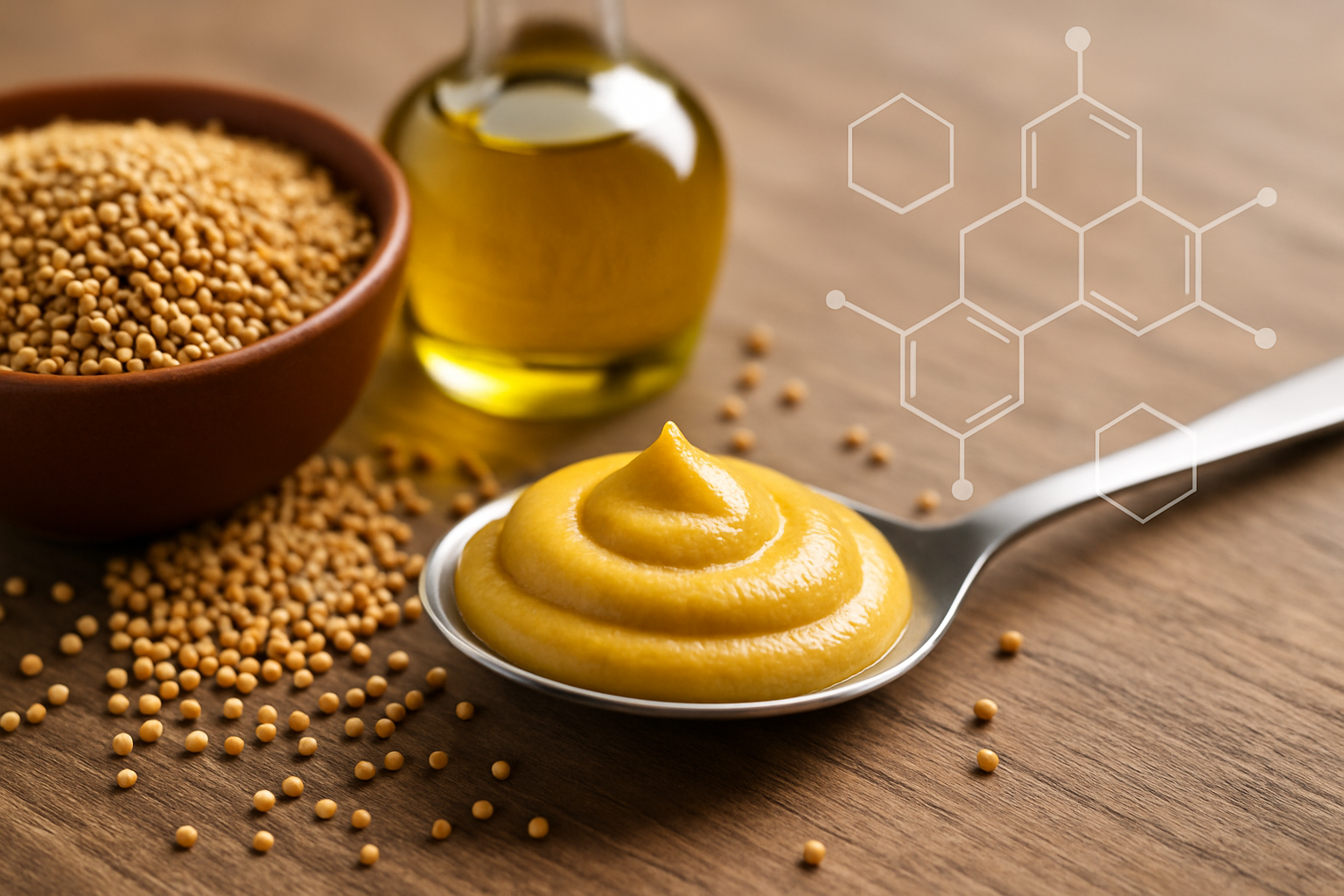
Close-up image of mustard condiment with mustard seeds and mustard oil illustrating the natural source of compounds causing mustard headaches.

